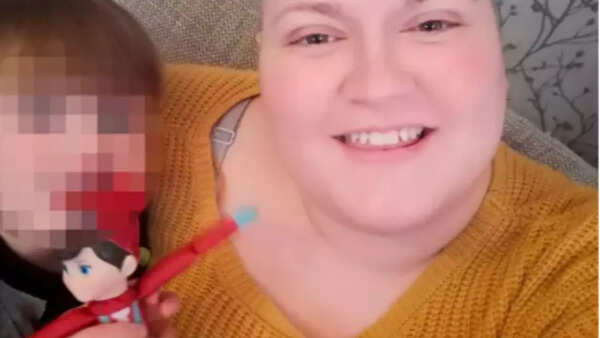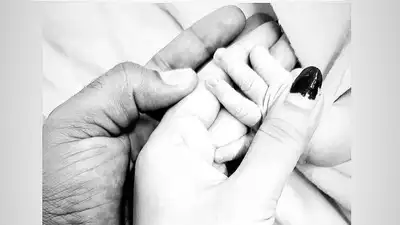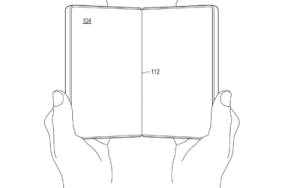Georgia Gardiner, a 28-year-old mother from Leeds, England, received a devastating diagnosis after her initial complaints were dismissed as mere heartburn. What started as nausea, stomach cramps, and loss of appetite last summer turned out to be a rare and aggressive form of stomach cancer known as linitis plastica.

Despite multiple visits to her doctor and local hospital, Gardiner was repeatedly told her symptoms were likely due to indigestion. This misdiagnosis continued even as her condition worsened, resulting in significant weight loss and difficulty eating.
After months of persistent advocacy for her health, Gardiner was finally referred for an endoscopy, which revealed the grim reality: linitis plastica. This aggressive cancer, often called "leather bottle stomach," causes the stomach lining to thicken, impairing its function.
By the time of her diagnosis on June 13, 2024, the cancer had already spread to her lymph nodes and other organs. Doctors delivered the heartbreaking news that her condition was terminal, estimating she had only 12 months to live. Treatment would focus on managing symptoms and improving her quality of life.

"I felt invincible. I never thought that I would develop cancer at 28. My world fell apart when I was informed that it is incurable," Gardiner shared.
Gardiner is now dedicated to making the most of her remaining time with her fiancé, Callum Scott, and their two-year-old son, Arlo. The couple has expedited their wedding plans, cherishing every moment together.

"The thing that breaks me is how much I’ll miss in Arlo’s life. He gives my life purpose," she said. Despite the grim prognosis, she remains determined to fight the cancer "in every way possible."
Gardiner hopes her story will encourage others to be proactive about their health. "Had I been taken seriously sooner, perhaps we could have nipped it in the bud before it spread. I just want others to get it in time," she urged. Her message is a powerful one: listen to your body, trust your instincts, and relentlessly pursue answers when something doesn't feel right.
Linitis plastica is a rare and insidious form of adenocarcinoma affecting the stomach lining. It's characterized by the stiffening and thickening of the stomach walls, often leading to a delayed diagnosis due to its subtle early symptoms.
Unfortunately, the aggressive nature of linitis plastica makes it challenging to treat, especially after it has spread beyond the stomach.
The exact cause of linitis plastica remains unknown. However, research suggests a strong link to diffuse-type gastric adenocarcinoma. In some instances, genetic mutations, particularly in the CDH1 gene, play a role, predisposing individuals to hereditary diffuse gastric cancer (HDGC).
Other potential contributing factors include:
The challenges in treating linitis plastica stem from several factors:
Newer articles
Older articles
 Vitamin D Could Slash Tooth Decay Risk by 50%, Study Suggests
Vitamin D Could Slash Tooth Decay Risk by 50%, Study Suggests
 Indian Cricket Star Mukesh Kumar and Wife Divya Singh Announce Birth of Son
Indian Cricket Star Mukesh Kumar and Wife Divya Singh Announce Birth of Son
 Shubman Gill's Captaincy Under Fire: Bold Calls Needed After England Test Defeat
Shubman Gill's Captaincy Under Fire: Bold Calls Needed After England Test Defeat
 Microsoft Aims for Foldable Redemption with Novel Hinge Design to Rival iPhone and Android
Microsoft Aims for Foldable Redemption with Novel Hinge Design to Rival iPhone and Android
 Popular Finance YouTuber's Account Hacked, Bitcoin Scam Promoted: Security Lessons Learned
Popular Finance YouTuber's Account Hacked, Bitcoin Scam Promoted: Security Lessons Learned
 Esha Gupta Breaks Silence on Hardik Pandya Romance Rumors: 'We Were Just Talking'
Esha Gupta Breaks Silence on Hardik Pandya Romance Rumors: 'We Were Just Talking'
 Hollywood's Love Affair with India: Iconic Film Locations Revealed
Hollywood's Love Affair with India: Iconic Film Locations Revealed
 Rishabh Pant Aims to Surpass Virat Kohli in Test Century Tally During England Series
Rishabh Pant Aims to Surpass Virat Kohli in Test Century Tally During England Series
 Prithvi Shaw Credits Sachin Tendulkar's Guidance for Career Revival After Setbacks
Prithvi Shaw Credits Sachin Tendulkar's Guidance for Career Revival After Setbacks
 Ashada Gupt Navratri 2025: Unveiling Dates, Timings, Significance & Secret Rituals
Ashada Gupt Navratri 2025: Unveiling Dates, Timings, Significance & Secret Rituals